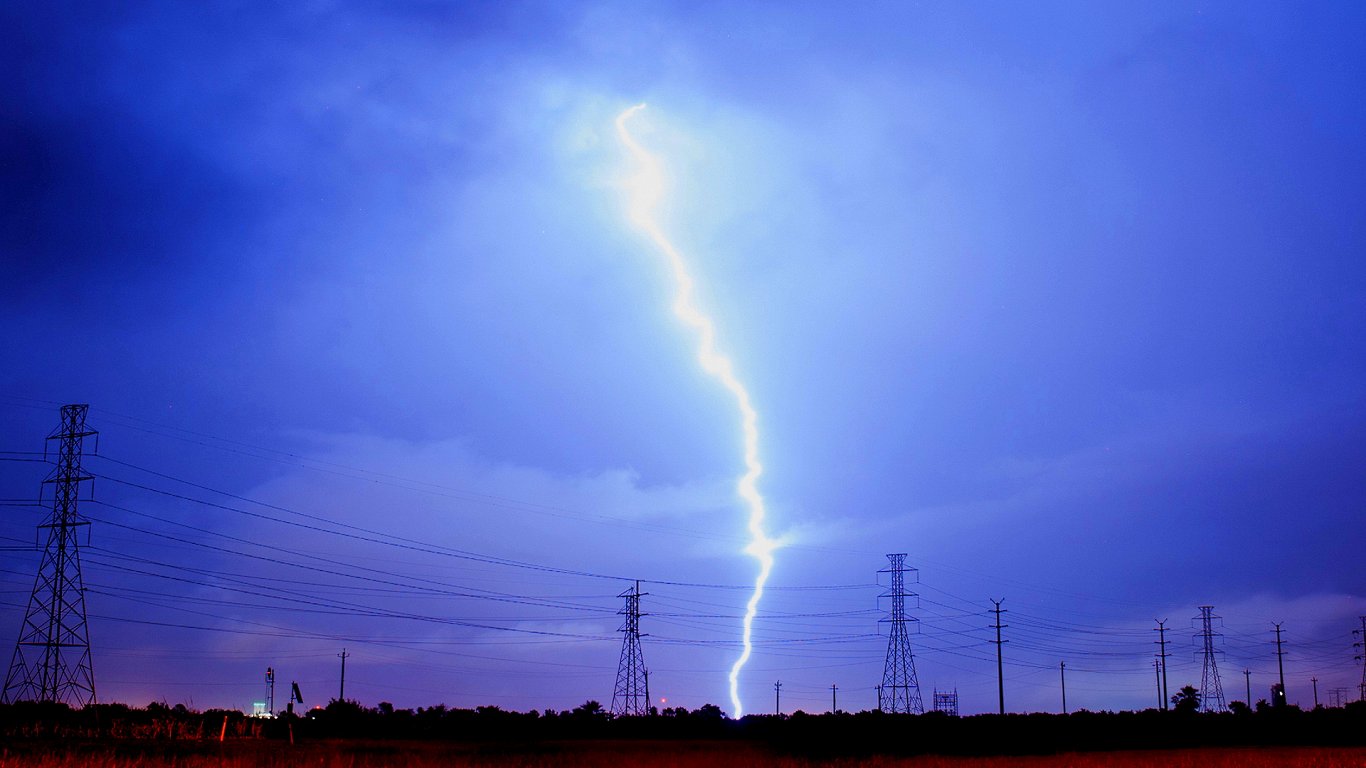The record-high increase in electricity prices in the Latvian segment of the Nordpool exchange – already more than three times a year (and the growth continues) – has affected not only end users. The company Senergo was the first to leave the market last week, focusing mainly on large consumers – state structures and business, but last year it increased its turnover more than four times, to 7.2 million euros.
Last Friday, the Public Utilities Commission announced that the company’s customers (less than a thousand, including several hundred households) would have to choose other suppliers. The shareholders of Senergo – members of the family of ex-banker Ernest Bern – have already started the liquidation process.
“Burned 10 thousand euros a day”
It became impossible to work with such fixed prices, Rusjslsec.lv said Andrejs Kombecovs, the director of the company “Senergo”: “ there are storage facilities. At present, the wholesale price has risen, and financial hedging no longer saves money. We lost a lot of money every day. The shareholders decided to leave the business. ”
Senergo started trading at a loss in the spring, when the first price jump took place. Initially, the shareholders helped by injecting new capital into the company.
After six months, the situation became much worse: “It is already beyond reality. Tomorrow [15. septembrī] average price on the stock exchange In Latvia is 160 euros per megawatt hour. But in the past, the total bill with all distribution tariffs and the rest, in which the price of energy accounted for about a third, was 110-120 euros. [par megavatstundu]. This is an unprecedented situation and it has sunk us. We just stopped burning money. ”
On one average day in August, the company “burned” about 10 thousand euros, Kombecovs said. If they had continued to work in September, the daily loss would have doubled: [elektroenerģijas] production. “
Latvenergo forecasts soon bankruptcies
This is just the first swallow, and there will soon be a wave of bankruptcies. It considers Latvenergo, the largest energy company in Latvia (among other things, it sells electricity on the retail market under the Elektrum brand). Many market players have promised their customers a certain price level, but now it cannot be guaranteed because they have to buy electricity on the wholesale market at a higher price.
“It can live for a month, maybe half a year. But what if a year? Then many electricity traders face bankruptcy, absolutely real. It will be like that!
In the coming months, we will see the bankruptcies of electricity traders. People think that if there are already high electricity prices, then the company makes a profit. No, that’s not the case, ”said Andris Siksnis, Latvenergo’s communications director, at Rus.lsm.lv.
Consumers who buy electricity at tariffs linked to the exchange price pay more – according to the current prices on the exchange. However, Latvenergo has no more than 20% of such customers, Siksnis said. However, most have long-term fixed-price contracts, and the company is negotiating with some of these customers to understand the situation.
“There are cases when we tell the client that it has become impossible for us to use this contract on the old terms, and that this price must be changed. We are trying to raise this price in some way through dialogue, bearing in mind that when the market falls, we will return to the previous price. We have such cases, we are forced to do so, ”said Siksnis.
Latvenergo’s communications director acknowledged that the company cannot change the agreement unilaterally: “We cannot simply say that the price will be different now, contrary to the agreement. And, of course, we do not break contracts unilaterally. We do not give up on any customer. When we can, let’s agree, when we can’t, everything will stay as it was. ”
Another option of Latvenergo’s action – if the text of the agreement nevertheless indicated how many times a year the trader may change the price, if there is an objective reason, then use this clause: “The wholesale price in the market is an objective reason. You now have to pay more than EUR 100 per megawatt-hour, but in the past you had to pay, say, 20. These are force majeure in the sense that we cannot influence that price. But changing the price in the current contract is not yet a common practice. And we don’t do it en masse. “
The basic tactic of the company is to wait. That is, wait for the contract to expire and offer a different price in the new contract.
“The electricity market has been open for five years, and customers have concluded contracts for different terms – one for one year, another for two. In August, many individuals, more than 200 thousand, switched contracts for new prices. Most stayed with us. If the contract of tens of thousands of customers expires in September, they also received new price offers, ”said Siksnis.
Due to the market situation, Latvenergo’s business will not go into the “cons”, Siksnis believes.
“The impact on profits will undoubtedly be, but it is not a disaster for us, everything is not so critical. There will always be a safety margin for companies that produce themselves [elektroenerģiju]. We have HPP and CHP. If there was a big influx of water, we would start making money. The problem is that there is no large inflow of water in the Daugava now. However, many in this business work only as traders, without generating their own electricity. Therefore, they only have to rely on the wholesale market. But prices have risen several times, and not only in Latvia, everywhere. ”
Are these really force majeure conditions? What the regulator recommends to the consumer
The Public Utilities Commission has not heard anything about traders trying to change prices in already concluded contracts that have not yet expired. However, for others related to energy, this is not new, Rus.lsm.lv found out.
“Yes, I have heard that traders are now trying to change the terms of their contracts and make such a rather interesting argument that force majeure has occurred. However, this is, of course, utter nonsense, ”said Juris Ozoliņš, an expert and former Minister of State for Energy.
“This is the fate of a dealer – if you have a contract to sell something, be it a car or electricity, but then prices have risen before delivery and you are in danger of losing, then you have to prove that these are indeed insurmountable circumstances. In this case, it is the same. Of course, such a version of force majeure is suitable for the trader, but I am not sure that it is also suitable for the consumer. “
“I would not like to call it force majeure,” commented Jānis Negribs, Head of the Market Surveillance Division of the Energy Department of the Public Utilities Commission. He recommends looking at the specific contract with the supplier.
“In most cases, force majeure is not price fluctuations on the stock exchange, but very atypical conditions – war or natural disasters. If the customer has received such an offer – to change the price in the current contract – it is necessary to look carefully at what conditions it provides.
The meaning of a fixed price is precisely its predictability over a given period, and the customer has the right to maintain that price, unless the text provides for the possibility of revising it at a certain periodicity. Such contracts – with a price review once or twice a year – exist in practice, in which case the trader has every legal possibility to do so. But the supplier must be notified in good time, at least one month in advance. And if the customer is not satisfied with the new price, he can look for new variants this whole month, ”said Jānis Negribs.
According to Juris Ozoliņš, bankruptcies among electricity traders in the current situation can indeed be: “We have quite a lot of it. And for those players who do not stand behind [lielie elektroenerģijas ražotāji] “Latvenergo, Eesti Energia, Ignitis, Inter RAO are, of course, big problems.”
In turn, the representative of the regulator recommends not to rush with such forecasts, because there are many nuances. On the one hand, prices fixed above can now cause losses. On the other hand, a lot depends on what conditions are stipulated in the contract (with the possibility to revise prices or not), what each has customer portfolios, financial reserves, hedging, shareholder strategy.
“Everything is very individual. I would not speculate at the expense of soon bankruptcy. I hope that we will not see a wave of mass cessation of activities, ”said Jānis Negribs.
According to the regulator, at the end of the second quarter, 16 electricity suppliers were actively working with Latvian households. Together with those who work only with corporate clients, there were more than 20 market players in Latvia.
Unsuccessful matches
In recent months, electricity prices in Europe and the Baltics have exceeded records due to a failed coincidence of several factors.
As the economy recovers from the pandemic, demand is growing. Natural gas prices are rising sharply in Europe and around the world, one of the main reasons being the rapid growth in Chinese industrial demand for gas. The European Union’s strict climate policy is making carbon dioxide prices more expensive, which is also making electricity, which is also produced in gas and coal-fired thermal power stations, more expensive (and is particularly in demand in times of deficit).
Weather is also affected, with the cold winter depleting Europe’s gas storage facilities more than usual and filling them up less than a year ago, including the policy of Russia’s natural gas group Gazprom, in no hurry to make the most of Ukraine’s transit infrastructure. In the Baltic States and Scandinavia, there was no rain in the summer and autumn, which led to a significant reduction in electricity production at hydropower plants. These problems are compounded by the general shortage of electricity generation capacity in Estonia and Lithuania, as well as the limited capacity of the cables connecting the Baltic and Nordic countries.
Experts and industry representatives surveyed by Rus.lsm.lv do not currently see any factors that could reduce the pressure on energy prices in the Baltics in the coming months.
–


:strip_icc():format(webp)/kly-media-production/medias/3380720/original/099217300_1613650788-Anak_Gadget_2.jpg)